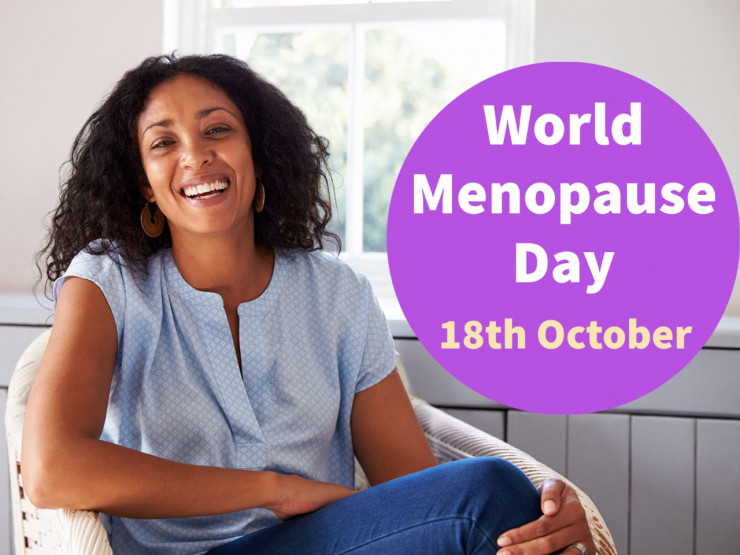Do you suspect that you’re experiencing symptoms of menopause but you’re afraid to speak out? Maybe your mother, aunts or grandmother referred to this natural, normal part of life as ‘the change’ and wouldn’t discuss the changes taking place in their bodies?
If so, you’re not alone. Although the likes of Davina McCall and Gabby Logan are opening up about their experiences, menopause remains taboo for many.
We’re here to change all of that this World Menopause Day.
With around 13 million women currently perimenopausal or postmenopausal in the UK, we need to start talking about menopause and perhaps most importantly, how we can deal with our psychological and physical symptoms.
Here’s some more information about perimenopause and menopause, including what symptoms you can expect, how long they’re likely to last and what you can do to better manage them.
When does menopause happen?
Every woman is unique. We all started our periods at different ages and the same applies to menopause.
Most women start to experience changes to their menstrual cycle and develop certain symptoms from age of 35 as their hormone levels begin to shift. This phase is known as perimenopause.
Eventually, your periods will stop. When you have gone for 12 months without a menstrual period, you have officially reached menopause. This usually happens between the ages of 45 and 55. The average age in the UK is 51.
However, around 1 in 100 women reach menopause before the age of 40. This is known as premature menopause and can be caused by genetics, smoking, chemotherapy, surgery and certain conditions.
What are the symptoms of menopause?
Most women will experience certain menopausal symptoms for many years before and after the menopause itself. These happen as the body attempts to cope with fluctuating hormone levels and adjust to the new hormonal balance.
Some symptoms can be relatively mild, whilst others can be quite debilitating. This can include:
● Hot flushes
● Night sweats
● Difficulty sleeping
● Low mood and anxiety
● Reduced sex drive
● Weight gain
● Vaginal dryness and discomfort during sex
● ‘Brain fog’ (problems with memory and concentration)
● Thinning hair
● Hirsutism (excessive hair growth)
● Changes in menstruation (skipping periods, heavier bleeding, etc.)
These symptoms can start during perimenopause and last for several years after your last period.
“How do I know if I’m menopausal?”
It’s important to remember that menopause isn’t an illness and you’re not sick. Therefore, you won’t need to be diagnosed officially by a doctor to be declared ‘menopausal.’ Usually, noticing symptoms such as the above are enough to indicate that you are nearing menopause.
At this time, it can be useful to keep a diary to keep track of when you have periods (if you’re still having any), how long your menstrual cycle is and how much you’re bleeding. This can also help if you decide to visit your GP.
However, if you’re experiencing symptoms of menopause before the age of 45, you should contact your GP who can carry out a blood test to measure your hormone levels.
What can I do about my symptoms of menopause?
Although there isn’t a ‘cure’ for menopause, there are many steps you can take to ease your symptoms and feel like your energetic self again. Here’s what our team at Whitworth Pharmacy suggests:
1. Ensure you’re eating a healthy, balanced diet to ensure you’re getting all the nutrients that your body needs. Take a nutritional supplement like Health Aid Menovital for extra support.
2. Exercise regularly to help you maintain a healthy weight, strengthen your bones and reduce your risk of cancer.
3. Get enough sleep and reduce your alcohol and cigarette consumption.
4. Consider Cognitive Behaviour Therapy (CBT) to help you deal with the psychological challenges.
5. Visit your doctor for further advice on HRT or other treatments.
6. Use vaginal creams, lubricants or moisturisers so you can enjoy an active sex life. We love Meg’s Menopause Motion Lotion.
7. Ease your hot flushes with a cooling spray like Meg’s Menopause Rosey Rain Facial Cooling Spray.
Further help
If you’re struggling with the symptoms of menopause, know that you’re not alone. Pop into your local branch of Whitworth - we can help you find the help and support that you need.
You can also visit the UK Menopause Support website or visit the NHS pages here.



